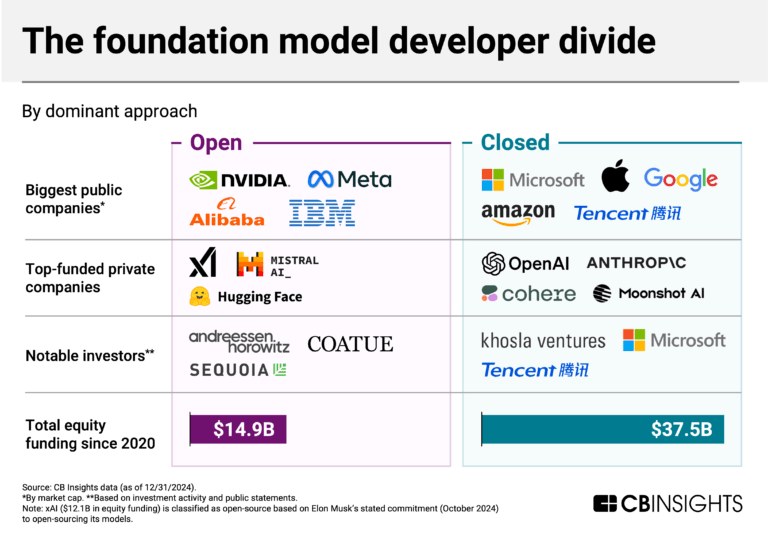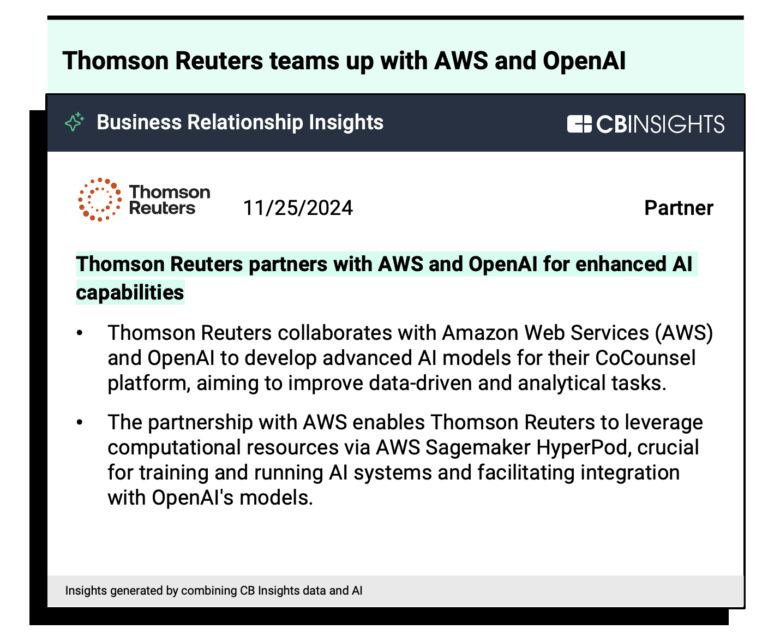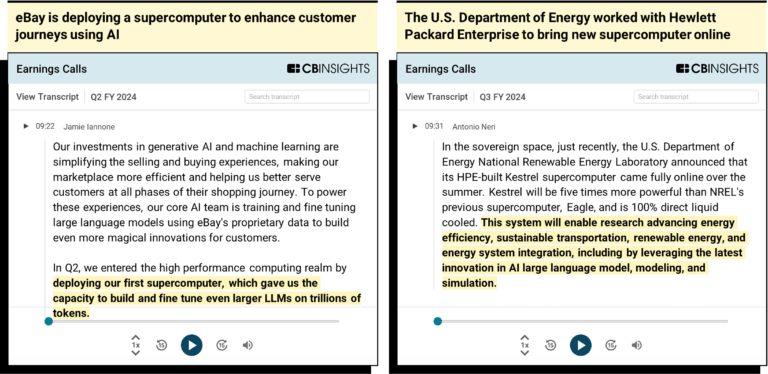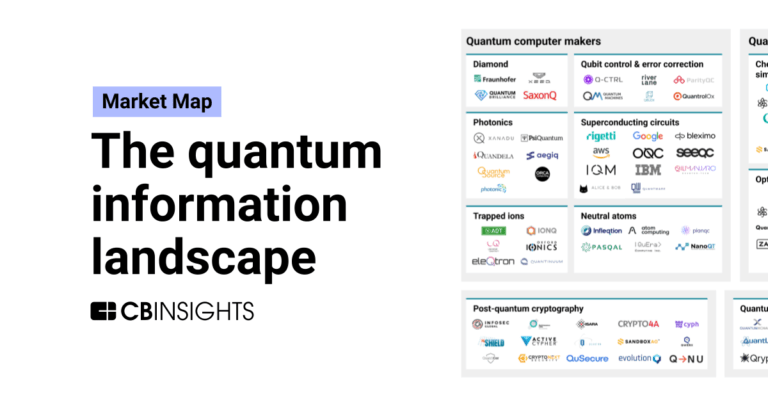
Amazon Web Services
Founded Year
2006Stage
Other Investors | AliveAbout Amazon Web Services
Amazon Web Services (AWS) provides cloud computing services in sectors including technology, finance, and healthcare. AWS offers services such as virtual servers and data storage, as well as AI and machine learning capabilities. The company serves startups, enterprises, and public sector organizations that use cloud technology. It was founded in 2006 and is based in Duvall, Washington.
Loading...
ESPs containing Amazon Web Services
The ESP matrix leverages data and analyst insight to identify and rank leading companies in a given technology landscape.
The AI development platforms market offers solutions that serve as one-stop shops for enterprises that want to develop and launch in-house AI projects. Vendors in this space enable organizations to manage aspects of the AI lifecycle — from data preparation, training, and validation to model deployment and continuous monitoring — through a single platform to facilitate end-to-end model development.…
Amazon Web Services named as Highflier among 15 other companies, including Google Cloud Platform, Databricks, and IBM.
Loading...
Research containing Amazon Web Services
Get data-driven expert analysis from the CB Insights Intelligence Unit.
CB Insights Intelligence Analysts have mentioned Amazon Web Services in 18 CB Insights research briefs, most recently on Jan 8, 2025.
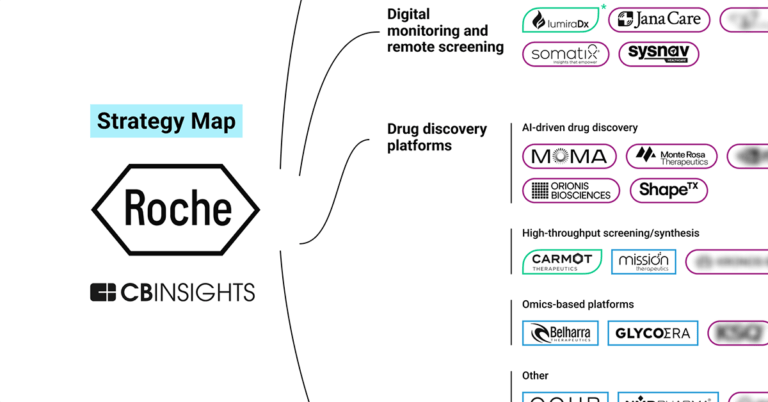
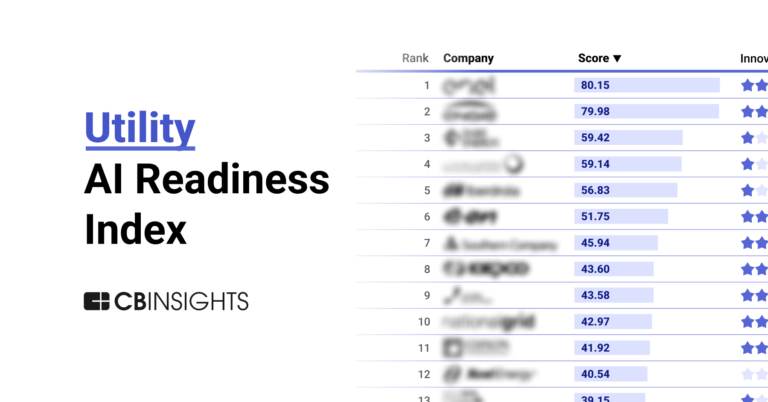
Sep 25, 2024
The top 25 utility companies by AI readiness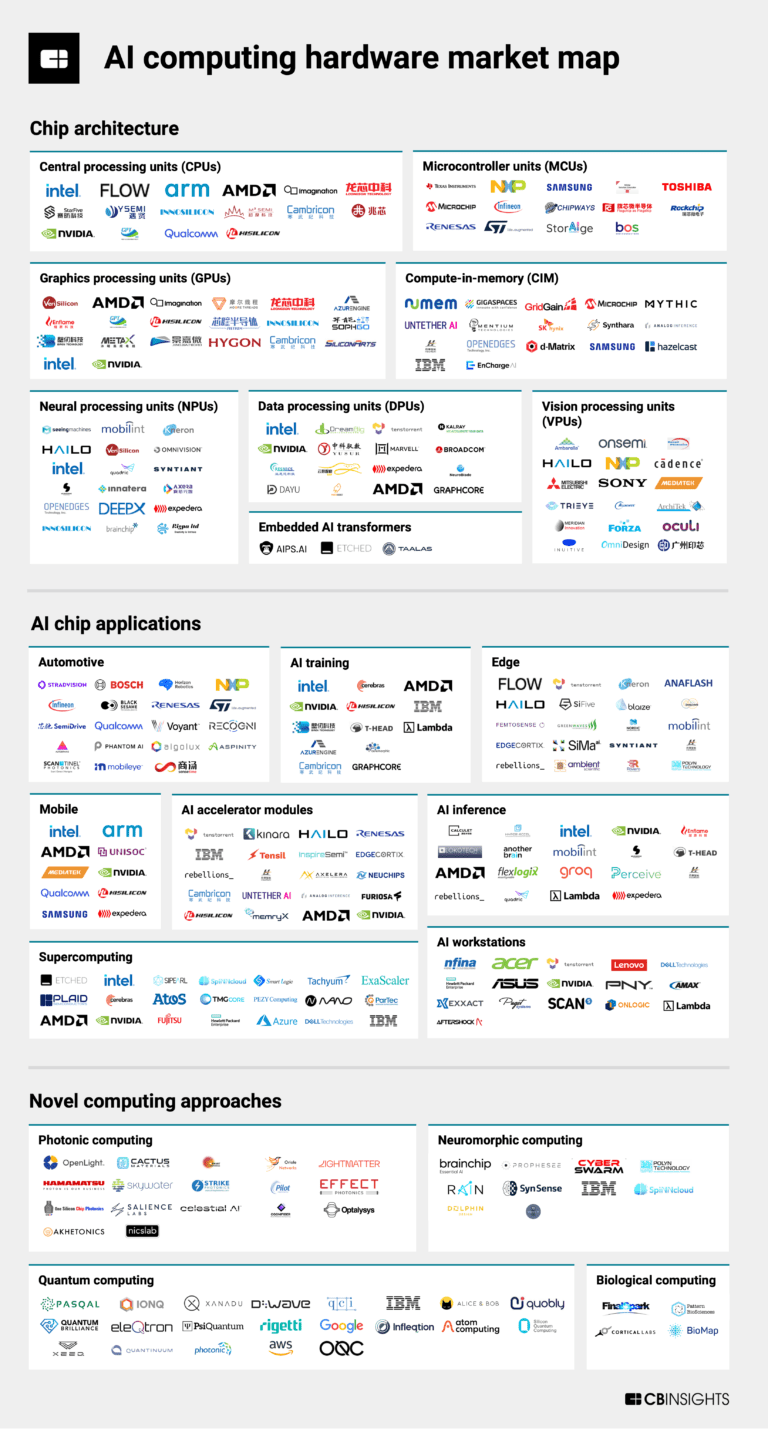
Sep 13, 2024
The AI computing hardware market map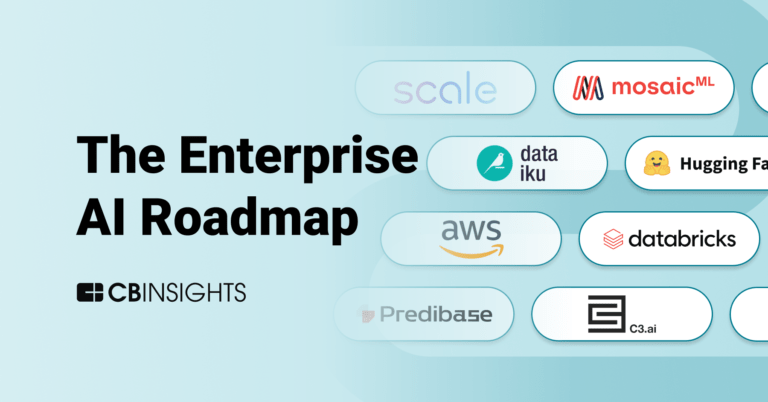
Expert Collections containing Amazon Web Services
Expert Collections are analyst-curated lists that highlight the companies you need to know in the most important technology spaces.
Amazon Web Services is included in 4 Expert Collections, including Conference Exhibitors.
Conference Exhibitors
5,302 items
ITC Vegas 2024 - Exhibitors and Sponsors
699 items
Created 9/9/24. Updated 10.22.24. Company list source: ITC Vegas. Check ITC Vegas' website for final list: https://events.clarionevents.com/InsureTech2024/Public/EventMap.aspx?shMode=E&ID=84001
NRF Big Show 2025: Exhibitors
959 items
AI agents
286 items
Companies developing AI agent applications and agent-specific infrastructure. Includes pure-play emerging agent startups as well as companies building agent offerings with varying levels of autonomy. Not exhaustive.
Latest Amazon Web Services News
Apr 2, 2025
Introducing AWS MCP Servers for code assistants (Part 1) Like Read Time: min We’re excited to announce the open source release of AWS MCP Servers for code assistants — a suite of specialized Model Context Protocol (MCP) servers that bring Amazon Web Services (AWS) best practices directly to your development workflow. Our specialized AWS MCP servers combine deep AWS knowledge with agentic AI capabilities to accelerate development across key areas. Each AWS MCP Server focuses on a specific domain of AWS best practices, working together to provide comprehensive guidance throughout your development journey. This post is the first in a series covering AWS MCP Servers. In this post, we walk through how these specialized MCP servers can dramatically reduce your development time while incorporating security controls, cost optimizations, and AWS Well-Architected best practices into your code. Whether you’re an experienced AWS developer or just getting started with cloud development, you’ll discover how to use AI-powered coding assistants to tackle common challenges such as complex service configurations, infrastructure as code (IaC) implementation, and knowledge base integration. By the end of this post, you’ll understand how to start using AWS MCP Servers to transform your development workflow and deliver better solutions, faster. If you want to get started right away, skip ahead to the section “From Concept to working code in minutes.” AI is transforming how we build software, creating opportunities to dramatically accelerate development while improving code quality and consistency. Today’s AI assistants can understand complex requirements, generate production-ready code, and help developers navigate technical challenges in real time. This AI-driven approach is particularly valuable in cloud development, where developers need to orchestrate multiple services while maintaining security, scalability, and cost-efficiency. Developers need code assistants that understand the nuances of AWS services and best practices. Specialized AI agents can address these needs by: Providing contextual guidance on AWS service selection and configuration Optimizing compliance with security best practices and regulatory requirements Promoting the most efficient utilization and cost-effective solutions Automating repetitive implementation tasks with AWS specific patterns This approach means developers can focus on innovation while AI assistants handle the undifferentiated heavy lifting of coding. Whether you’re using Amazon Q , Amazon Bedrock , or other AI tools in your workflow, AWS MCP Servers complement and enhance these capabilities with deep AWS specific knowledge to help you build better solutions faster. Model Context Protocol (MCP) is a standardized open protocol that enables seamless interaction between large language models (LLMs), data sources, and tools. This protocol allows AI assistants to use specialized tooling and to access domain-specific knowledge by extending the model’s capabilities beyond its built-in knowledge—all while keeping sensitive data local. Through MCP, general-purpose LLMs can now seamlessly access relevant knowledge beyond initial training data and be effectively steered towards desired outputs by incorporating specific context and best practices. Accelerate building on AWS What if your AI assistant could instantly access deep AWS knowledge, understanding every AWS service, best practice, and architectural pattern? With MCP, we can transform general-purpose LLMs into AWS specialists by connecting them to specialized knowledge servers. This opens up exciting new possibilities for accelerating cloud development while maintaining security and following best practices. Build on AWS in a fraction of the time, with best practices automatically applied from the first line of code. Skip hours of documentation research and immediately access ready-to-use patterns for complex services such as Amazon Bedrock Knowledge Bases . Our MCP Servers will help you write well-architected code from the start, implement AWS services correctly the first time, and deploy solutions that are secure, observable, and cost-optimized by design. Transform how you build on AWS today. Enforce AWS best practices automatically – Write well-architected code from the start with built-in security controls, proper observability, and optimized resource configurations Cut research time dramatically – Stop spending hours reading documentation. Our MCP Servers provide contextually relevant guidance for implementing AWS services correctly, addressing common pitfalls automatically Access ready-to-use patterns instantly – Use pre-built AWS CDK constructs, Amazon Bedrock Agents schema generators, and Amazon Bedrock Knowledge Bases integration templates that follow AWS best practices from the start Optimize cost proactively – Prevent over-provisioning as you design your solution by getting cost-optimization recommendations and generating a comprehensive cost report to analyze your AWS spending before deployment To turn this vision into reality and make AWS development faster, more secure, and more efficient, we’ve created AWS MCP Servers—a suite of specialized AWS MCP Servers that bring AWS best practices directly to your development workflow. Our specialized AWS MCP Servers combine deep AWS knowledge with AI capabilities to accelerate development across key areas. Each AWS MCP Server focuses on a specific domain of AWS best practices, working together to provide comprehensive guidance throughout your development journey. Overview of domain-specific MCP Servers for AWS development Our specialized MCP Servers are designed to cover distinct aspects of AWS development, each bringing deep knowledge to specific domains while working in concert to deliver comprehensive solutions: Core – The foundation server that provides AI processing pipeline capabilities and serves as a central coordinator. It helps provide clear plans for building AWS solutions and can federate to other MCP servers as needed. AWS Cloud Development Kit (AWS CDK) – Delivers AWS CDK knowledge with tools for implementing best practices, security configurations with cdk-nag , Powertools for AWS Lambda integration, and specialized constructs for generative AI services. It makes sure infrastructure as code (IaC) follows AWS Well-Architected principles from the start. Amazon Bedrock Knowledge Bases – Enables seamless access to Amazon Bedrock Knowledge Bases so developers can query enterprise knowledge with natural language, filter results by data source, and use reranking for improved relevance. Amazon Nova Canvas – Provides image generation capabilities using Amazon Nova Canvas through Amazon Bedrock, enabling the creation of visuals from text prompts and color palettes—perfect for mockups, diagrams, and UI design concepts. Cost – Analyzes AWS service costs and generates comprehensive cost reports, helping developers understand the financial implications of their architectural decisions and optimize for cost-efficiency. Prerequisites AWS credentials with appropriate permissions An MCP-compatible LLM client (such as Anthropic’s Claude for Desktop, Cline, Amazon Q CLI, or Cursor) From concept to working code in minutes You can download the AWS MCP Servers on GitHub or through the PyPI package manager. Here’s how to get started using your favorite code assistant with MCP support. To install MCP Servers, enter the following code: # Install and setup the MCP servers{ "mcpServers": { "awslabs.core-mcp-server": { "command": "uvx", "args": [ "awslabs.core-mcp-server@latest" ], "env": { "FASTMCP_LOG_LEVEL": "ERROR", "MCP_SETTINGS_PATH": "path to your mcp server settings" }, "autoApprove": [], "disabled": false }, "awslabs.bedrock-kb-retrieval-mcp-server": { "command": "uvx", "args": ["awslabs.bedrock-kb-retrieval-mcp-server@latest"], "env": { "AWS_PROFILE": "your-aws-profile", "AWS_REGION": "us-east-1" } }, "awslabs.cdk-mcp-server": { "command": "uvx", "args": ["awslabs.cdk-mcp-server@latest"], "env": { "FASTMCP_LOG_LEVEL": "ERROR" } }, "awslabs.cost-analysis-mcp-server": { "command": "uvx", "args": ["awslabs.cost-analysis-mcp-server@latest"], "env": { "AWS_PROFILE": "your-aws-profile", "FASTMCP_LOG_LEVEL": "ERROR" } }, "awslabs.nova-canvas-mcp-server": { "command": "uvx", "args": ["awslabs.nova-canvas-mcp-server@latest"], "env": { "AWS_PROFILE": "your-aws-profile", "AWS_REGION": "us-east-1" } } }} AWS MCP Servers in action Here’s how AWS MCP servers transform the development experience: Developer: “I need to build an AI-powered chatbot using Amazon Bedrock that can answer questions from our company’s knowledge base. I also want to add a tool for the chatbot to call our internal API.” Core: “I’ll help you build an Amazon Bedrock Knowledge Bases chatbot with API integration. Let’s create an architecture that uses Amazon Bedrock Agents with a custom action group to call your internal API.” Core generates a comprehensive architecture diagram showing the knowledge base integration, Amazon Bedrock Agents configuration with action groups, API connectivity, and data flow between components. AWS CDK: “Here’s the infrastructure code for your chatbot with the Amazon Bedrock Agents action group. I’ve included proper IAM roles, security controls, and Lambda Powertools for observability.” // CDK code with Well-Architected best practices const knowledgeBase = new BedrockKnowledgeBase(this, 'CompanyKB', { embeddingModel: BedrockFoundationModel.TITAN_EMBED_TEXT_V1, vectorStore: new OpenSearchServerlessVectorStore(this, 'VectorStore', { encryption: OpenSearchEncryption.KMS, ebs: OpenSearchEbsOptions.provisioned(100, OpenSearchVolumeType.GP3) }) }); // Action Group for API integration const actionGroupSchema = new BedrockAgentSchema(this, 'ApiActionSchema', { schemaPath: 'schemas/api-action-schema.json', // Schema will be auto-generated from your Lambda code generateFromLambda: { lambdaPath: 'lambda/api-actions.py', outputPath: 'schemas/api-action-schema.json' } }); const apiActionGroup = new BedrockAgentActionGroup(this, 'ApiActionGroup', { actionGroupName: 'InternalApiActions', description: 'Actions to interact with internal API', actionGroupExecutor: new BedrockAgentLambdaExecutor(apiActionsLambda), actionGroupSchema: actionGroupSchema }); The CDK MCP Server generates complete AWS CDK code to deploy the entire solution. It automatically runs cdk-nag to identify potential security issues and provides remediation steps for each finding, making sure that the infrastructure follows AWS Well-Architected best practices. Amazon Bedrock Knowledge Bases retrieval: “I’ve configured the optimal settings for your knowledge base queries, including proper reranking for improved relevance.” Amazon Bedrock Knowledge Bases MCP Server demonstrates how to structure queries to the knowledge base for maximum relevance, provides sample code for filtering by data source, and shows how to integrate the knowledge base responses with the chatbot interface. Amazon Nova Canvas: “To enhance your chatbot’s capabilities, I’ve created visualizations that can be generated on demand when users request data explanations.” Amazon Nova Canvas MCP server generates sample images showing how Amazon Nova Canvas can create charts, diagrams, and visual explanations based on knowledge base content, making complex information more accessible to users. Cost Analysis: “Based on your expected usage patterns, here’s the estimated monthly cost breakdown and optimization recommendations.” The Cost Analysis MCP Server generates a detailed cost analysis report showing projected expenses for each AWS service, identifies cost optimization opportunities such as reserved capacity for Amazon Bedrock, and provides specific recommendations to reduce costs without impacting performance. With AWS MCP Servers, what would typically take days of research and implementation is completed in minutes, with better quality, security, and cost-efficiency than manual development in that same time. Best practices for MCP-assisted development To maximize the benefits of MCP assisted development while maintaining security and code quality, developers should follow these essential guidelines: Always review generated code for security implications before deployment Use MCP Servers as accelerators, not replacements for developer judgment and expertise Keep MCP Servers updated with the latest AWS security best practices Follow the principle of least privilege when configuring AWS credentials Run security scanning tools on generated infrastructure code Coming up in the series This post introduced the foundations of AWS MCP Servers and how they accelerate AWS development through specialized, AWS specific MCP Servers. In upcoming posts, we’ll dive deeper into: Detailed walkthroughs of each MCP server’s capabilities Advanced patterns for integrating AWS MCP Servers into your development workflow Real-world case studies showing AWS MCP Servers’ impact on development velocity How to extend AWS MCP Servers with your own custom MCP servers Stay tuned to learn how AWS MCP Servers can transform your specific AWS development scenarios and help you build better solutions faster. Visit our GitHub repository or Pypi package manager to explore example implementations and get started today. About the Authors Jimin Kim is a Prototyping Architect on the AWS Prototyping and Cloud Engineering (PACE) team, based in Los Angeles. With specialties in Generative AI and SaaS, she loves helping her customers succeed in their business. Outside of work, she cherishes moments with her wife and three adorable calico cats. Pranjali Bhandari is part of the Prototyping and Cloud Engineering (PACE) team at AWS, based in the San Francisco Bay Area. She specializes in Generative AI, distributed systems, and cloud computing. Outside of work, she loves exploring diverse hiking trails, biking, and enjoying quality family time with her husband and son. Laith Al-Saadoon is a Principal Prototyping Architect on the Prototyping and Cloud Engineering (PACE) team. He builds prototypes and solutions using generative AI, machine learning, data analytics, IoT & edge computing, and full-stack development to solve real-world customer challenges. In his personal time, Laith enjoys the outdoors–fishing, photography, drone flights, and hiking. Paul Vincent is a Principal Prototyping Architect on the AWS Prototyping and Cloud Engineering (PACE) team. He works with AWS customers to bring their innovative ideas to life. Outside of work, he loves playing drums and piano, talking with others through Ham radio, all things home automation, and movie nights with the family. Justin Lewis leads the Emerging Technology Accelerator at AWS. Justin and his team help customers build with emerging technologies like generative AI by providing open source software examples to inspire their own innovation. He lives in the San Francisco Bay Area with his wife and son. Anita Lewis is a Technical Program Manager on the AWS Emerging Technology Accelerator team, based in Denver, CO. She specializes in helping customers accelerate their innovation journey with generative AI and emerging technologies. Outside of work, she enjoys competitive pickleball matches, perfecting her golf game, and discovering new travel destinations.
Amazon Web Services Frequently Asked Questions (FAQ)
When was Amazon Web Services founded?
Amazon Web Services was founded in 2006.
Where is Amazon Web Services's headquarters?
Amazon Web Services's headquarters is located at 410 Terry Avenue North, Duvall.
What is Amazon Web Services's latest funding round?
Amazon Web Services's latest funding round is Other Investors.
Who are the investors of Amazon Web Services?
Investors of Amazon Web Services include Sharesight.
Who are Amazon Web Services's competitors?
Competitors of Amazon Web Services include Render, RNV Analytics, VULCAiN Ai, TensorWave, Foundry and 7 more.
Loading...
Compare Amazon Web Services to Competitors

Microsoft Azure is a cloud computing service created by Microsoft for building, testing, deploying, and managing applications and services through Microsoft-managed data centers. It was founded in 1975 and is based in Redmond, Washington.

Google Cloud Platform provides cloud computing services and enterprise-grade solutions across various sectors. The company offers products including AI and machine learning tools, data analytics, cloud infrastructure, and security services. Google Cloud Platform serves a range of industries, including retail, financial services, healthcare, and others. It was founded in 2008 and is based in Mountain View, California. Google Cloud Platform operates as a subsidiary of Google.

Databricks is a data and AI company that specializes in unifying data, analytics, and artificial intelligence across various industries. The company offers a platform that facilitates data management, governance, real-time analytics, and the building and deployment of machine learning and AI applications. Databricks serves sectors such as financial services, healthcare, public sector, retail, and manufacturing, among others. It was founded in 2013 and is based in San Francisco, California.

DataRobot specializes in artificial intelligence and offers an open, end-to-end AI lifecycle platform within the technology sector. The company provides solutions for scaling AI applications, monitoring and governing AI models, and driving business value through predictive and generative AI. DataRobot serves various industries, including healthcare, manufacturing, retail, and financial services, with its AI platform. It was founded in 2012 and is based in Boston, Massachusetts.

Dataiku integrates technology, teams, and operations to assist companies in incorporating intelligence into their daily operations across various industries. The platform provides tools for building, deploying, and managing data, analytics, and artificial intelligence (AI) projects, including generative AI, machine learning, data preparation, insights generation, and AI governance. Dataiku serves sectors such as banking, life sciences, manufacturing, telecommunications, insurance, retail, public sector, utilities, energy, and healthcare. It was founded in 2013 and is based in New York, New York.

H2O.ai specializes in generative AI and machine learning. It provides a comprehensive AI cloud platform for various industries. The company offers a suite of AI cloud products, including automated machine learning, distributed machine learning, and tools for AI-driven data extraction and processing. H2O.ai caters to sectors such as financial services, healthcare, insurance, manufacturing, marketing, retail, and telecommunications. H2O.ai was formerly known as 0xdata. It was founded in 2012 and is based in Mountain View, California.
Loading...

